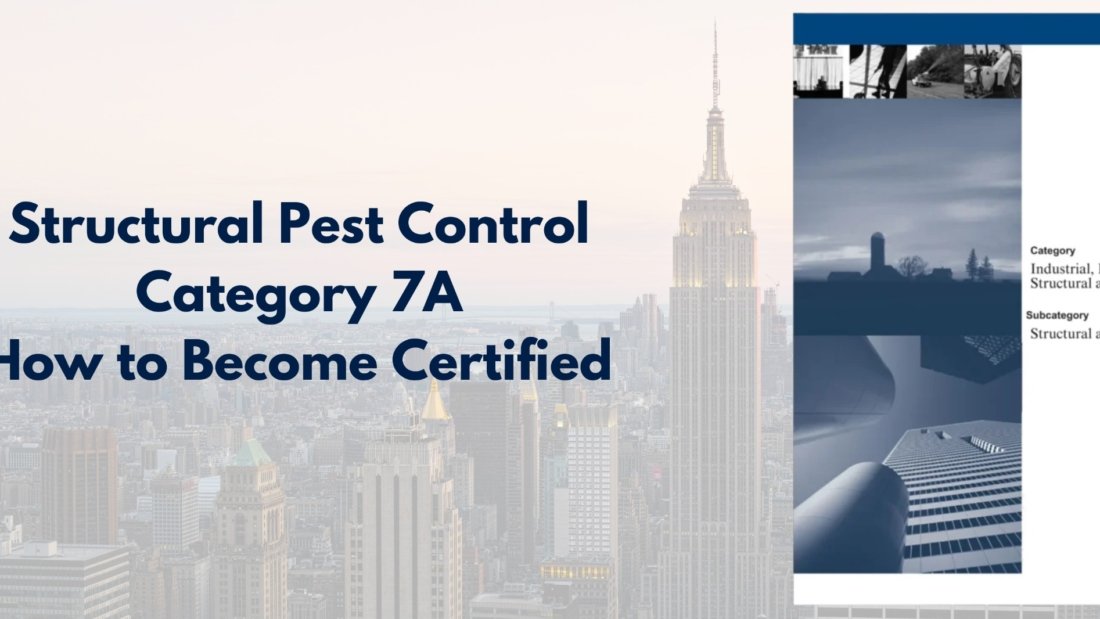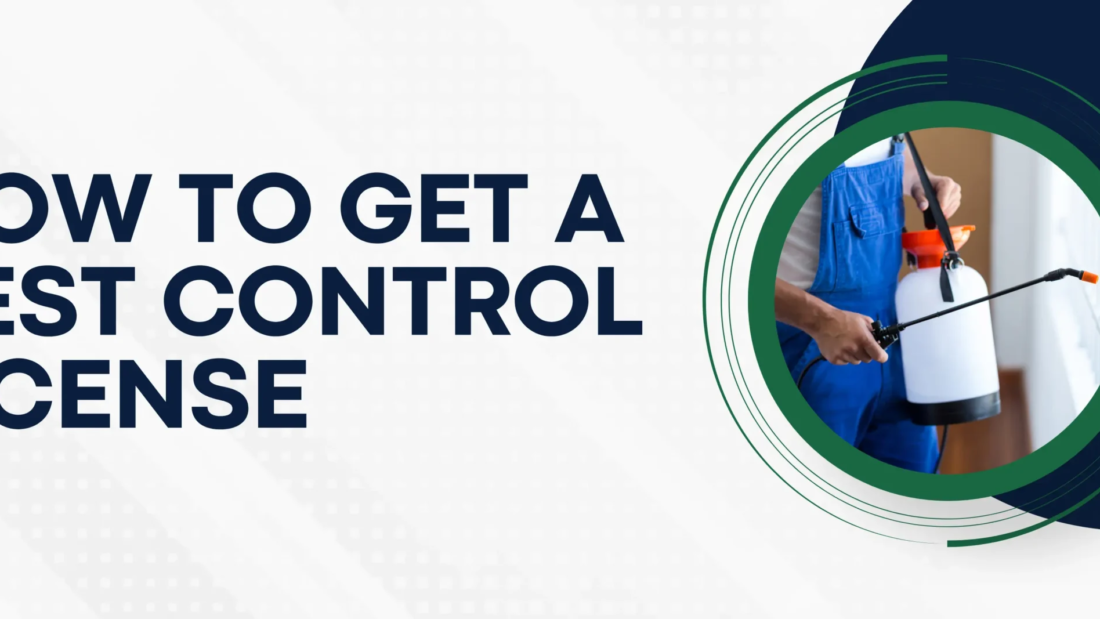Pesticide Applicator License Guide: Steps to Get Certified for Pest Control
The pesticide applicator’s license is an approved document granting persons the legal capacity to use pesticides in pest control operations. This certification enables the applicator to understand proper chemical use methods, environmental protection, and compliance requirements for state and federal regulations. The law requires professional pesticide workers to have a valid license for executing pesticide applications on commercial properties or their land.
Keep reading to know more about pesticide applicators’ licenses.
Types of Pesticide Applicator Licenses
Baby Success Service allocates various pesticide applicator licenses for performing specific work tasks. Here are the main ones:
Commercial Pesticide Applicator License
Business professionals require this licensing to apply pesticides at work sites. A pesticide applicator license for commercial work is necessary if you want to apply for pesticides at a pest control company or landscape service organization. The license enables you to administer pesticides for customers at their request.
Pesticide Private Applicator License
Anyone who handles pesticides on their individual property needs to have this license. The license target audience includes farmers and ranchers with residential use of pesticides for agricultural work and personal property management without commercial intent.
How to Get Certified as a Pesticide Applicator
The certification process to become a commercial pesticide applicator takes several defined steps. The procedures to obtain commercial pesticide and private applicator licensure follow identical steps.
Steps to Get Certified as a Pesticide Applicator
Step 1: Choose the Right License
Start by deciding between a commercial pesticide applicator license and a private applicator license. A commercial license becomes necessary when applying pesticides to a business entity or organization. Calling for pesticides on private land can be accomplished with a private license.
Step 2: Complete Required Training
You need to finish pesticide applicator training sessions after selecting your license classification. Training programs teach you about:
- Learn the correct methods for working with pesticides to prevent environmental damage and accidents involving yourself and others.
- Study both your target pests and their specific control methods during pest identification.
- State and federal laws regarding pesticide use are explained in the training program.
- Environmental protection involves learning methods to prevent pesticide contamination of water bodies, air, and soil surfaces.
- Your state and preferred method determine between in-person or online completion of training sessions.
3rd Step: Pesticide Applicator License Test
The training completion leads to taking the pesticide applicator license test. The licensure assessment contains questions directly related to the subjects covered by the training. The test will ask about pesticide types, pest control methods, safety practices, and legal requirements.
Writers of pesticide applicator licenses need to pass either written tests or they might need to complete practical applications based on state regulations. The license application process starts after the successful completion of the required test.
Step 4: Submit your Pesticide License Application
After passing the test, you must send your pesticide license application to the regulatory agency that governs your state. The application demands essential data regarding your training background, exam scores, and the selected license type. Certain states might need additional documents along with specific fees. The review process will result in issuing you your pesticide applicator license.
Commercial Pesticide Applicator / Operator Training and Testing
The training process for business pesticide applicators operates at higher levels than what private applicators receive. Courses for Commercial pesticide applicators and operators teach detailed subject matter that includes:
Specific pesticide types: Attend instruction regarding different pest-control chemicals designed for particular pest species.
Advanced pest management techniques: Obtain the training required to manage extensive pest infestations in business and residential properties.
Regulations and compliance: The requirement to understand local, state and federal laws governing pesticide application exists for all applicators.
Commercial applicators must withstand the pesticide applicator license test, which presents greater difficulty than the private applicators test. Operating professionals need to take courses regularly to renew their certification.
Costs & Time Required to Get Licensed
Your location and the type of pesticide applicator license you seek influence both the time and investment required for certification. Below is a general overview of the key factors involved in obtaining a license:
Training Requirements:
Applicants can choose between online and in-person courses, each varying in cost based on the provider and state regulations.
License Application Process:
The application process involves a fee, which differs by state and is determined by local regulatory agencies.
Examination Considerations:
Most states require a licensing exam, which comes with an associated fee that varies depending on jurisdiction.
Time Required:
The license acquisition process requires between one to three months. After finishing the training, you should study for the test while taking the test and finally send your license application to the appropriate authority.process requires between one to three months. After finishing the training, you should study for the test while taking the test and finally send your license application to the appropriate authority.
Benefits of Getting a Pesticide Applicator License
A pesticide applicator license provides multiple benefits to its holders.
Legal Protection
A license provides legal protection during a pesticide application. The license enables you to follow state and federal rules that defend you from fines, penalties, and legal actions.
Professional Credibility
Professional pest control’s reputable status increases with the acquisition of a pesticide license. Part of being licensed demonstrates your competence to handle pesticides with safety as your priority properly.
Job Opportunities
All pest control companies and agricultural businesses need a valid pesticide applicator license to operate. You can open more doors for employment and practice as a certified pest control professional through a valid license.
Safety
The pesticide license demonstrates to you the proper methods for safely using chemicals. Holding a pesticide license enables you to safeguard yourself, your clients, and the environment when working with chemicals.
Pesticide Applicator Certification and Licensing Program
Pesticide Applicator Certification and Licensing Program provides all necessary education to safely utilize pesticides. Training under this program covers pesticide safety and pest management, environmental protection, and other topics. The program completion will prepare you for the pesticide applicator license test, making you eligible to obtain your license.
How NYC Pest Management School Can Help
New York residents can study at the NYC Pest Management School to receive educational programs needed to earn a pesticide applicator license. Students can study at the school through classroom and online programs delivering NY pesticide applicator license test preparation.
The institution supplies expert instructors and educational materials with practical training that helps students prepare for their exams.
How to Become a Qualified Pesticide Applicator in New York
Becoming a qualified pesticide applicator in New York requires completing the following procedure.
Complete Training: You must complete training in acceptable state programs like the NYC Pest Management School training sessions.
Submit Application: New York residents must submit their pesticide license application for review to the New York Department of Environmental Conservation.
Maintain Certification: To keep your certification valid, you must continue your education while renewing your license through regular practice.
FAQ’s
What is a pesticide?
Pesticides represent chemical substances that eliminate or control pests among ants and rodents together with weeds.
How do you start a pest control Business?
Starting a pest control business requires licensing as a commercial pesticide applicator, insurance, and competent pest control skills.
What does an exterminator do?
The exterminator treats homes and businesses by applying pesticides to control or eliminate pests. Specialists who operate under a commercial pesticide applicator license constitute the majority of exterminators.
Is pest control safe?
Word of mouth indicates pest control remains safe when practitioners properly execute their treatments. Pesticide use safety is established by appropriate training combined with certification.
Can I do pest control myself?
Private property owners who apply pesticides do not need a license for their work. Professional pest control services and commercial operations need a pesticide applicator license for legal operation.


